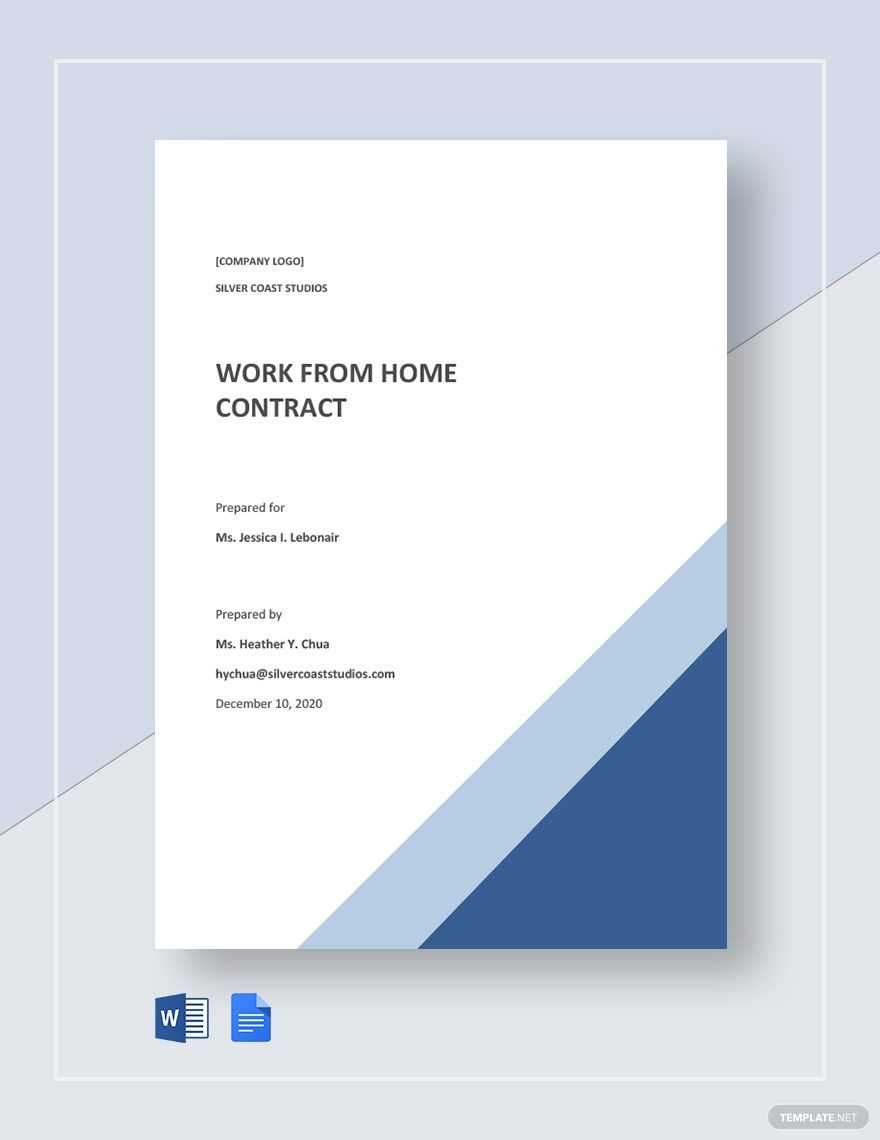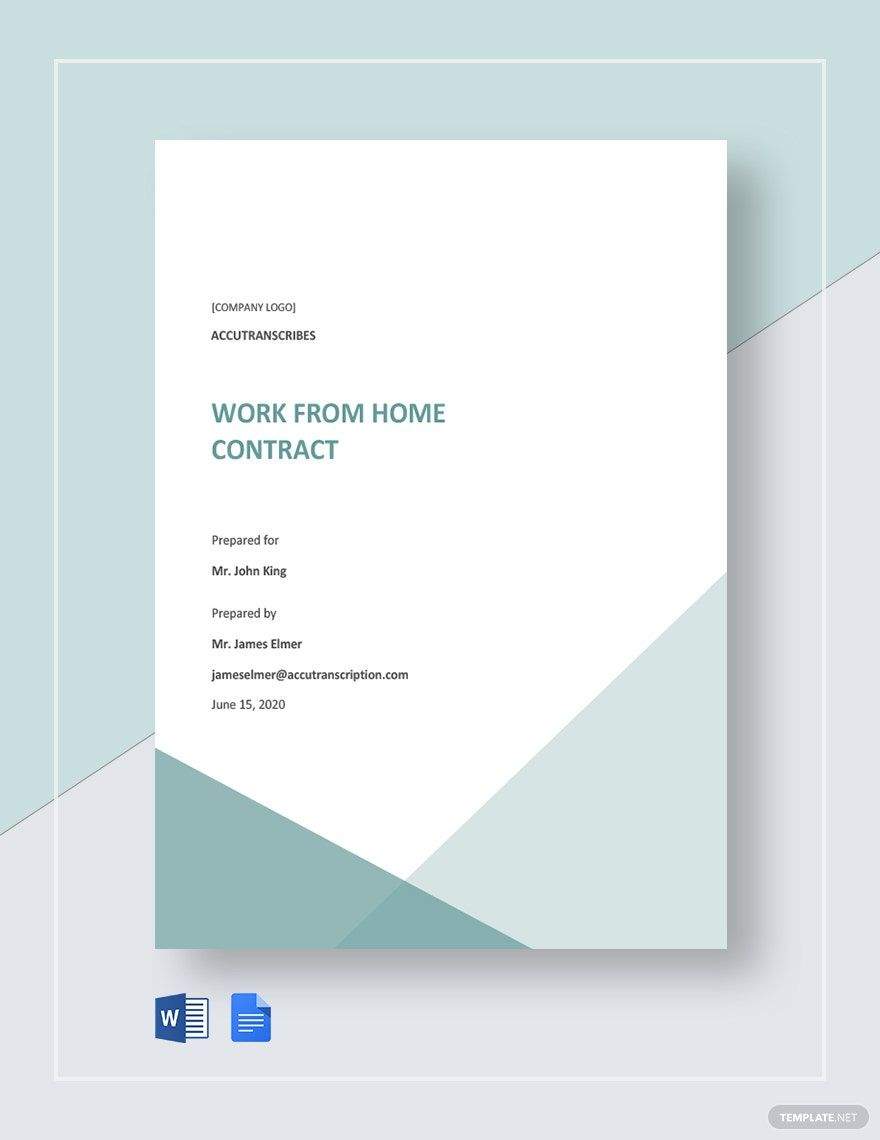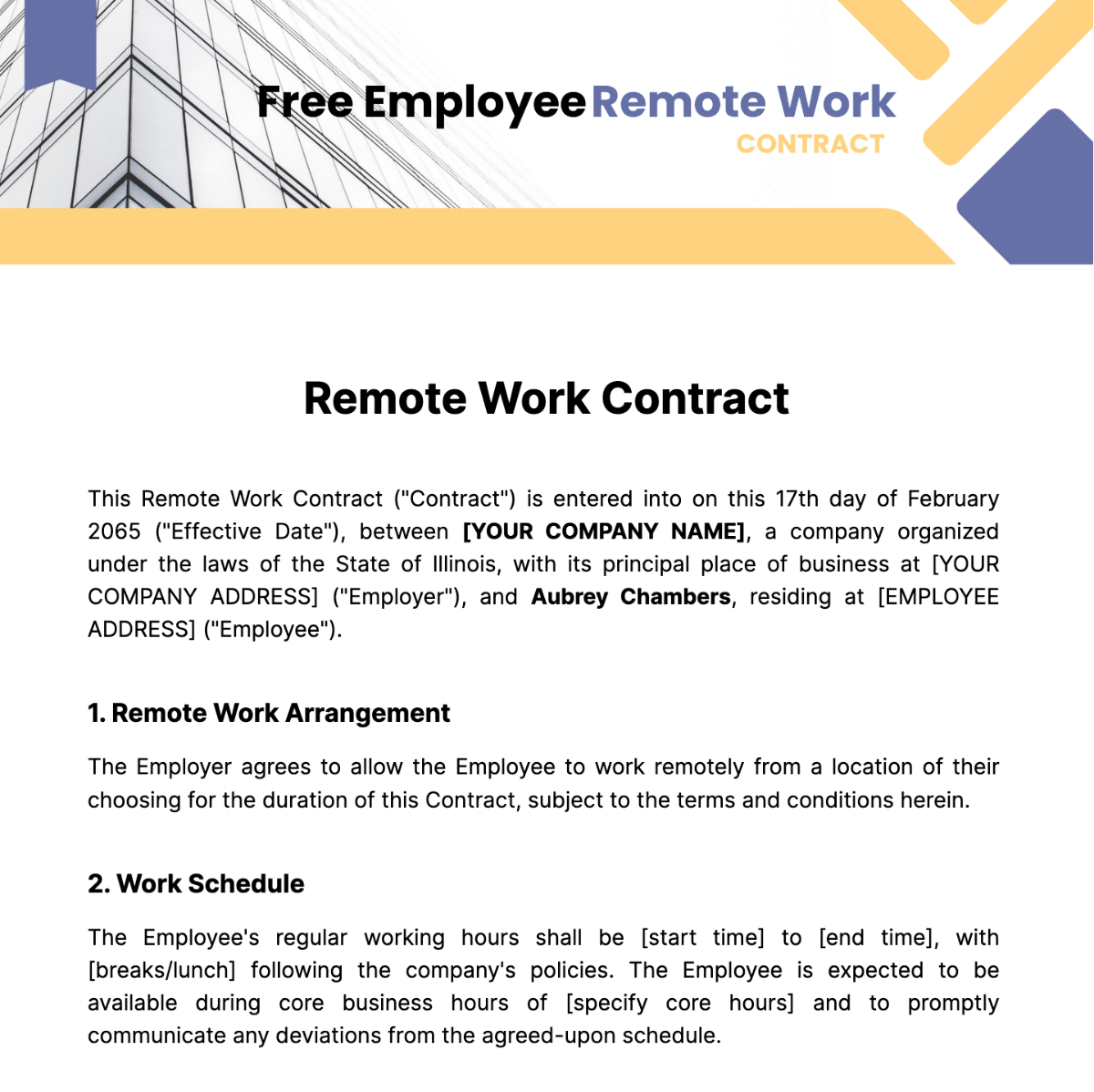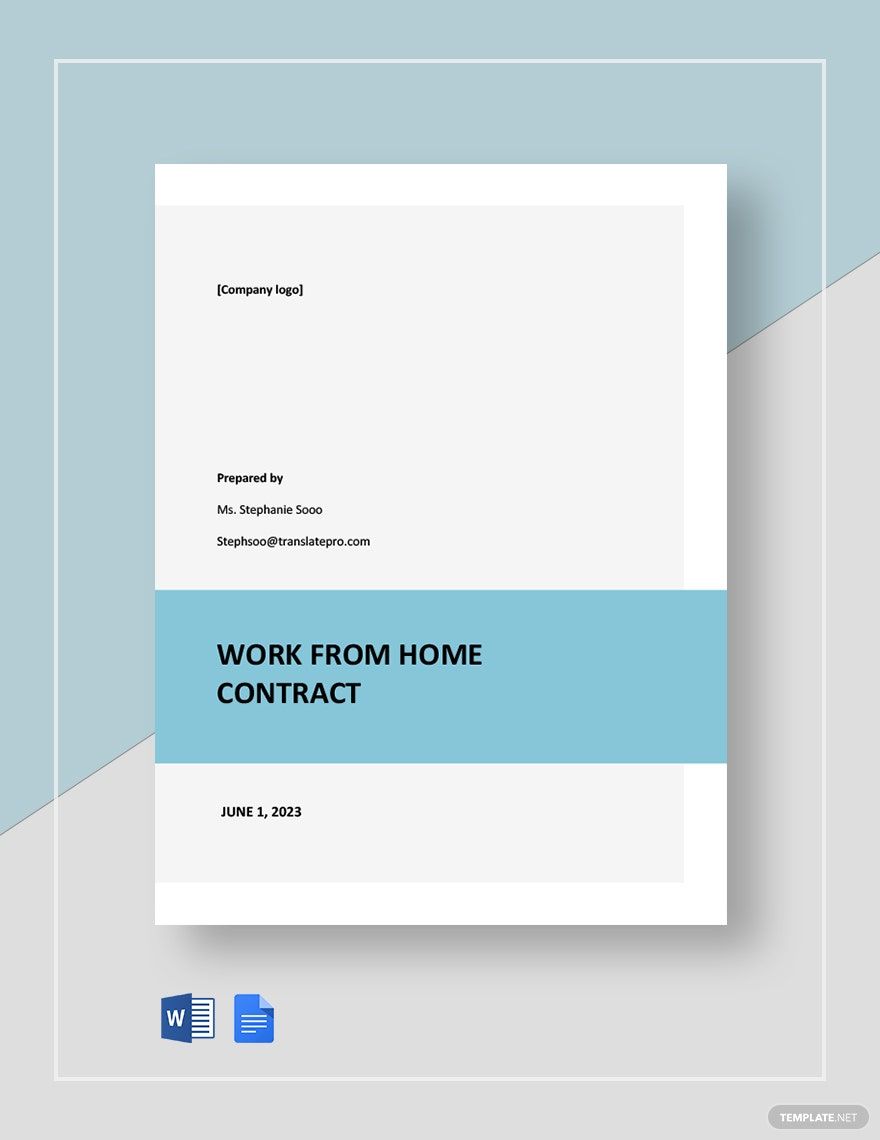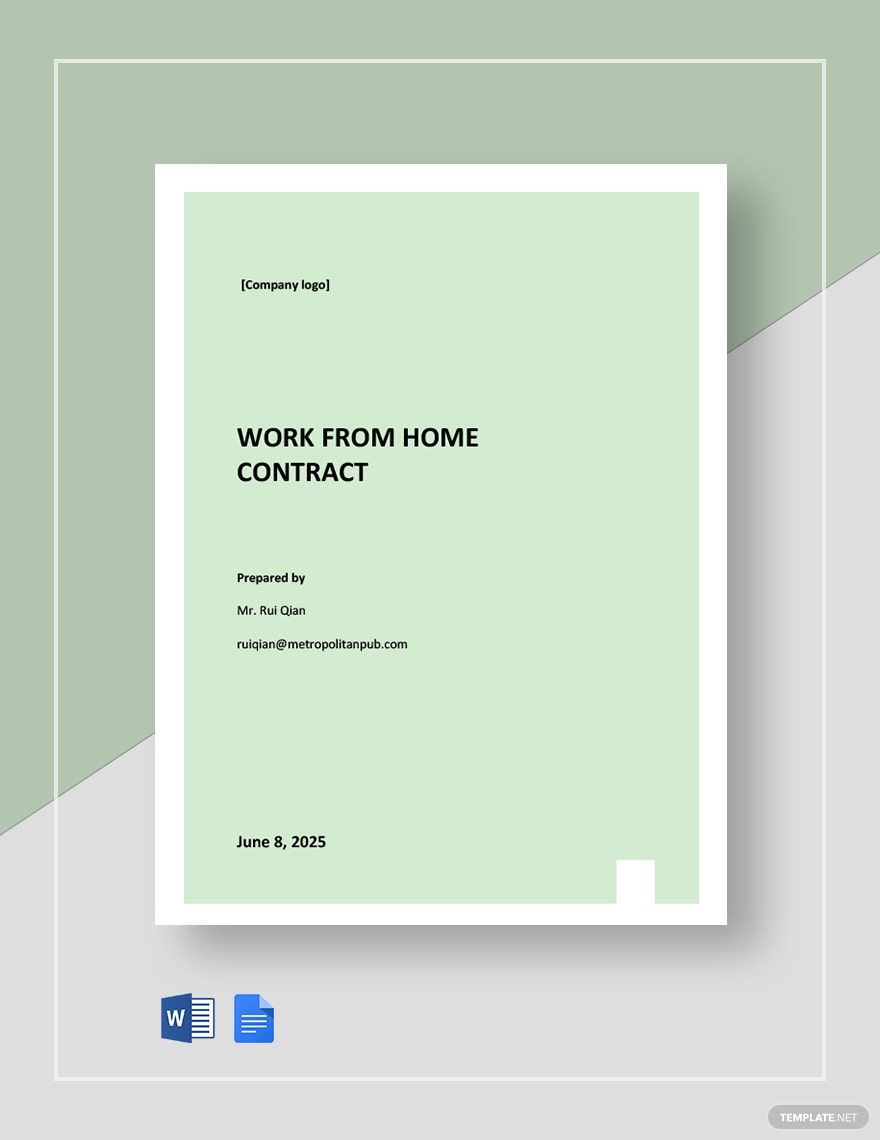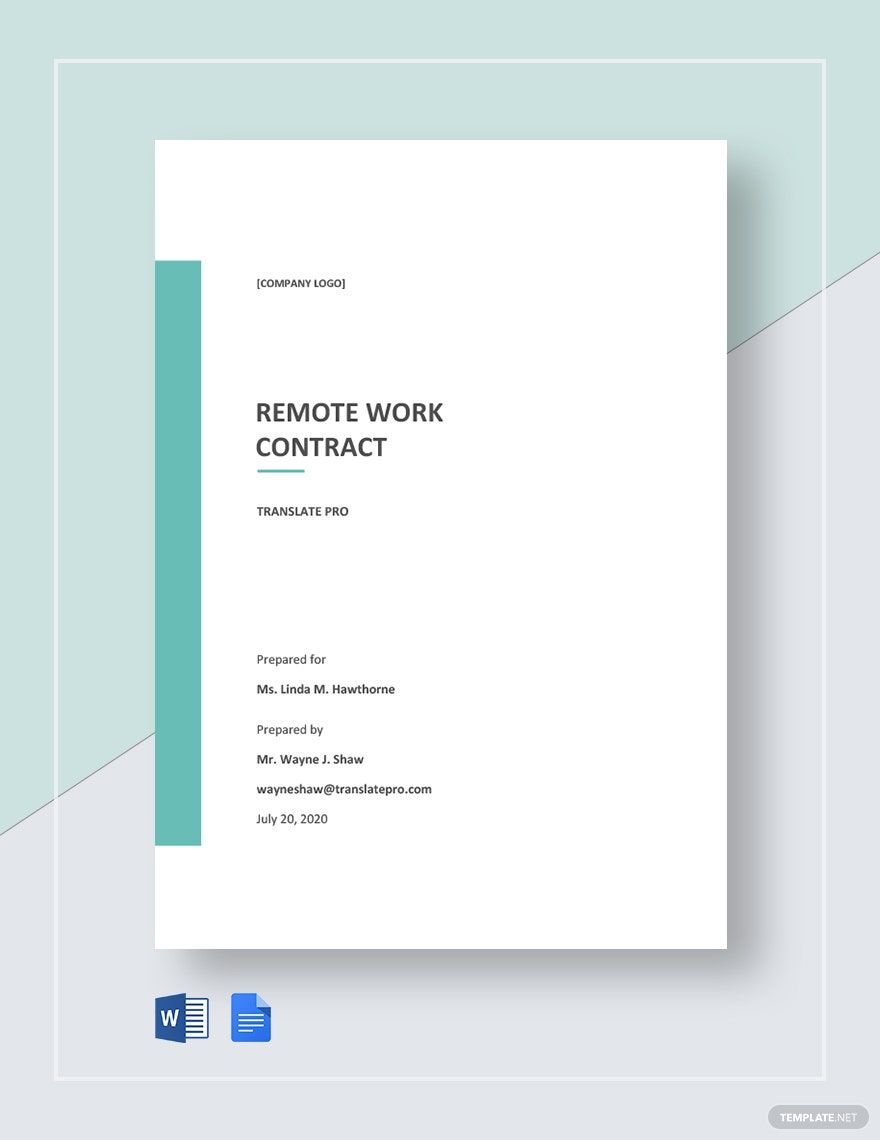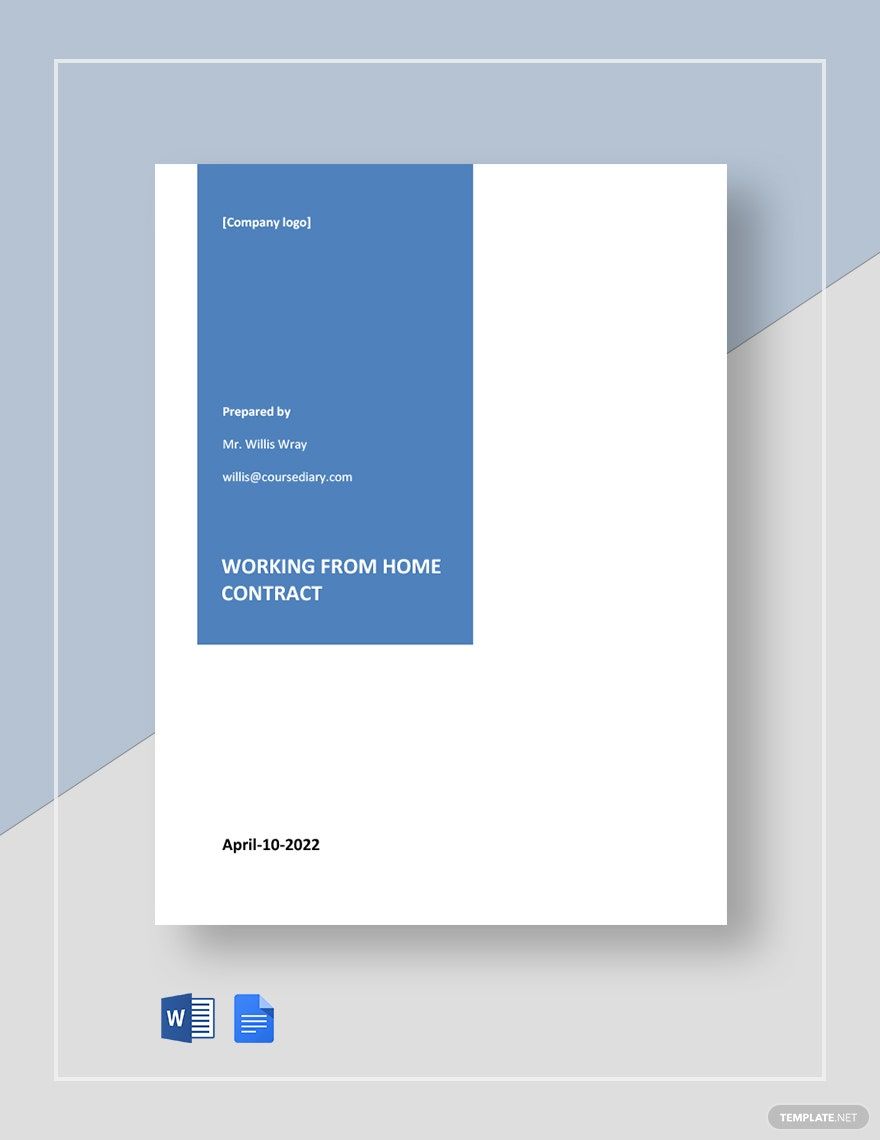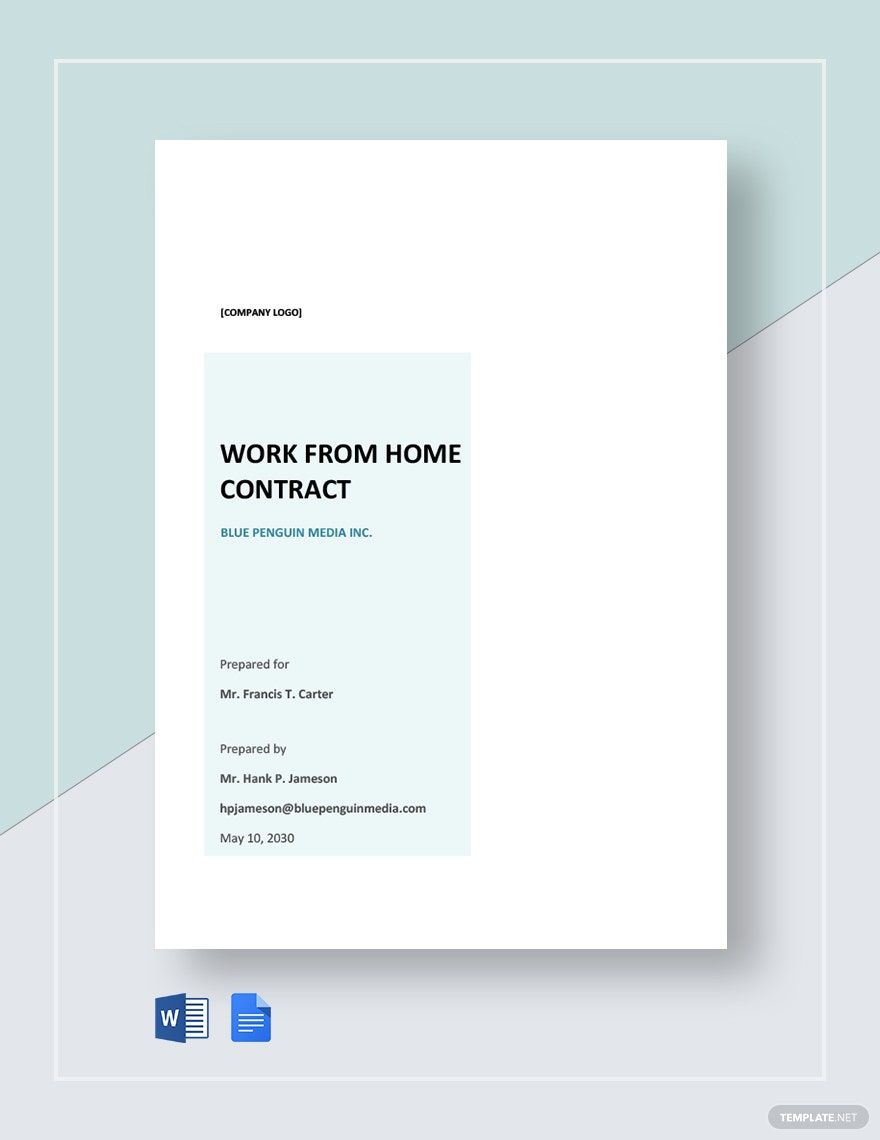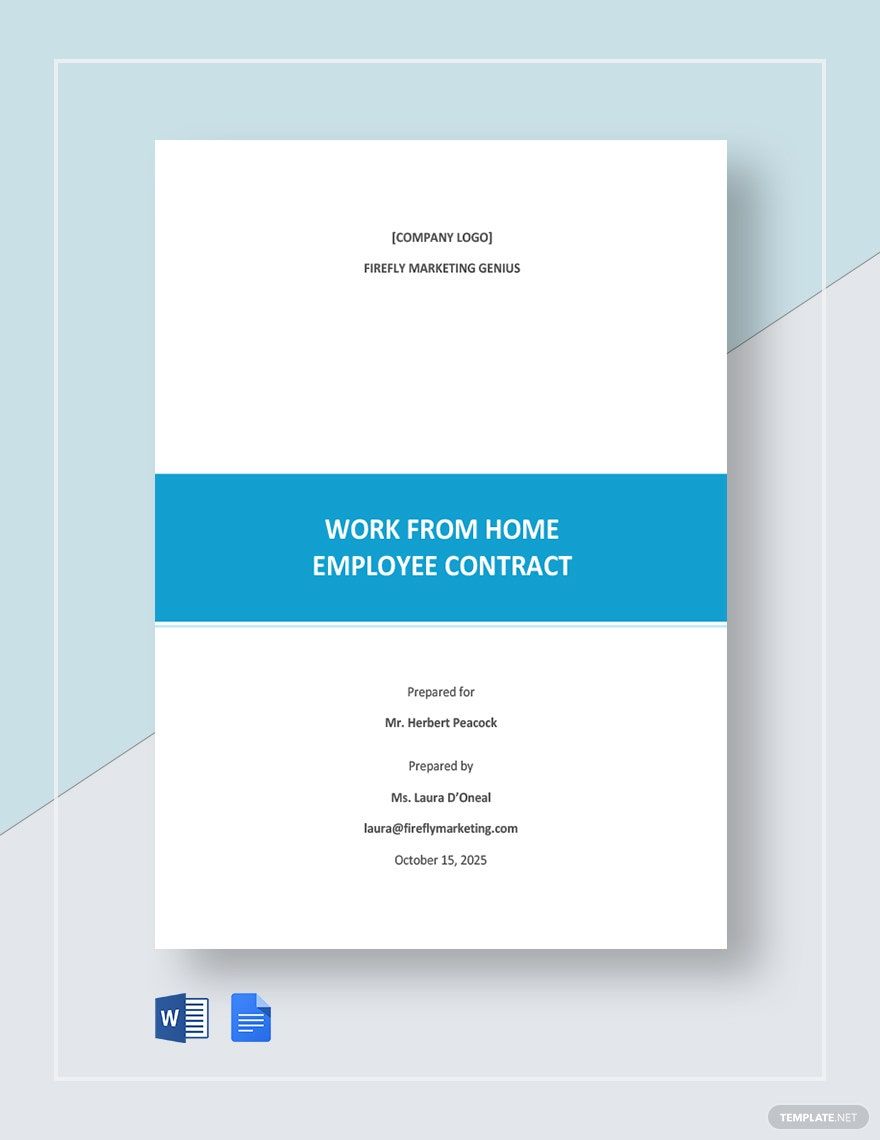Have you finally decided to open an opportunity for your employees to telecommute? Before you let them go in their merry way, make sure that you set the terms and conditions right. Use our Work from Home Contract Templates that already contains significant written content that requires minimal editing. Choosing these templates you only require a few minutes of personalization and then you are ready to use them. They are 100% editable and printable and contains basic terms and conditions that you would like to impose on work from home setting. Do not miss out on this opportunity and download our templates today. Subscribe now to start downloading!
How to Write a Work from Home Contract?
Through a work-from-home contract, the HR department can provide crucial details to their employee's employment terms and agreements. This type of contract comes in writing and can be or short or long, depending on the nature of the work-from-home job. Additionally, work-from-home contracts also outline the employee's duties and responsibilities that are expected for them to perform for a specified period.
Do you want to create a work contract or agreement as your business adapts and embraces a work-from-home arrangement? Then check out the following tips and guidelines below and be sure to take down notes!
1. Know the Basic Elements
For a work-from-home contract to be valid, it must contain essential elements such as agreement, capacity, and consideration. When writing down the agreement, it must state the offer of one party to the other and the acceptance of the offer. When it comes to capacity, the parties involved in the contract should be capable enough to comprehend the terms, conditions, and obligations they will be responsible for once signing the contract.
2. State the Purpose of the Contract
While it is obvious what the employment policy is made and written for, it is still essential to state and make the purpose of your work-from-home contract proposal. The purpose could also note what the employer can expect from the employee upon signing the contract that allows them to work from the comfort of their homes.
3. Provide Clear Work-from-Home Policies
Working from home could pose not only challenges to the employees, but it can also be challenging on the employer's end. Such challenges include the employee's productivity and discipline while working in their homes. Clear your minds right from the outset by incorporating the right and appropriate work-from-home policies in the contract. An Upwork press release reports that while there is an increase in the number of companies embracing the work-from-home or telecommuting arrangements, more than half of it does not have a clear work policy.
4. Allot a Space for the Signatures of Both Parties
To make the contract legally binding, it should contain the full name and signature of the employer and the employee. That is why do not forget to include an ample space in the contract where both parties can adequately affix their signatures.

